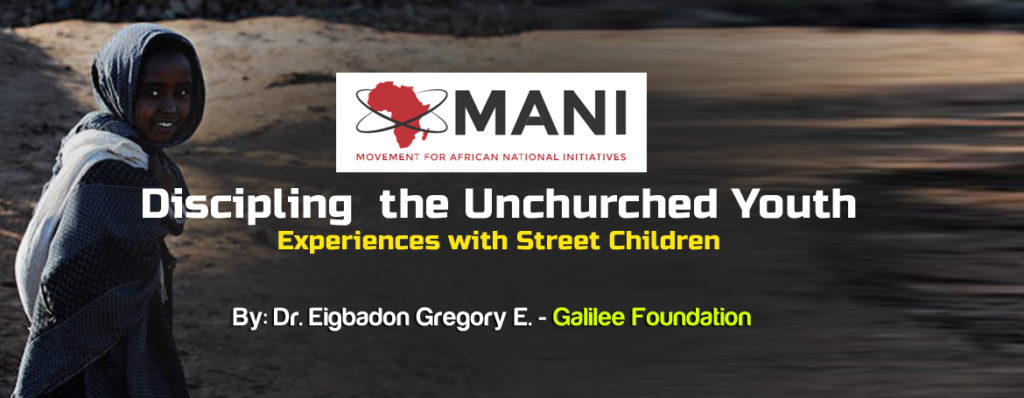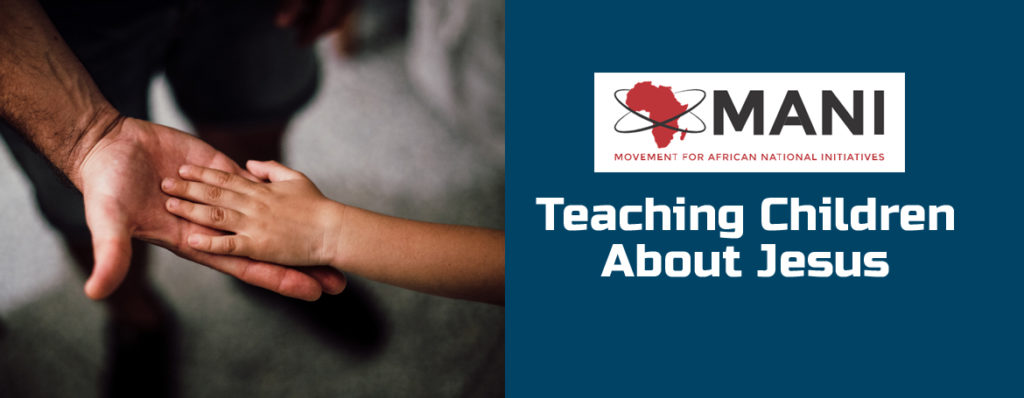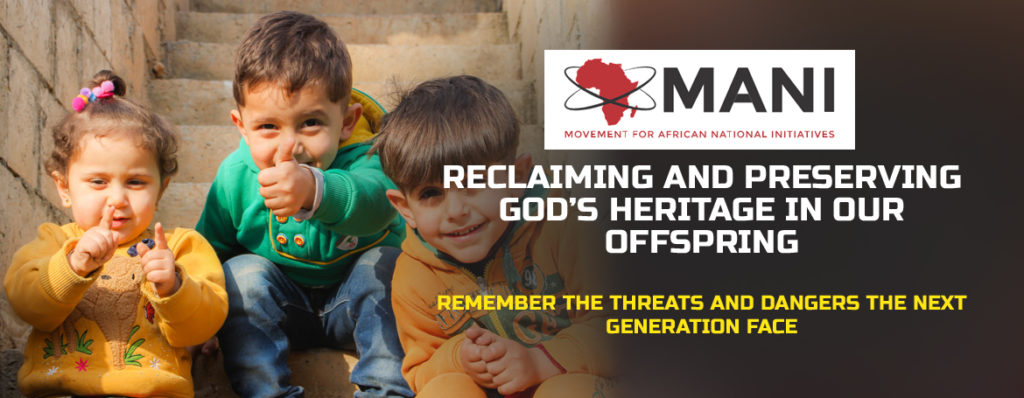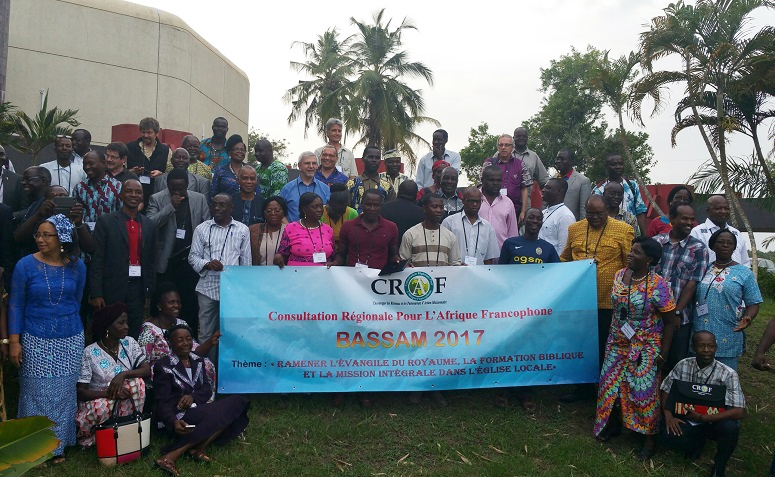Welcome Greetings
I stand here this morning, as the coordinator of the Transformational Discipleship Network of the Movement for African National Initiatives (MANI), to welcome once again, every participant in this landmark congress.
Organizing this congress has been an act of faith. It originated from the MANI congress of last year (March 2016) in Addis Ababa. There, the suggestion was made and approved for the subject of discipleship to be given a special continental consideration in our bid to fulfill the great commission.
Today, and by the grace of the Almighty God, we are witnesses of the realization of this goal. This is why, as a first step, we should give all the glory to God for inspiring and providing for all of us, who are here now. There are many more enthusiasts, who for one reason or the other, are not able to be with us in this meeting. But God has made it possible for us to be here. We praise Him for His mercy and provisions.
Some of your communications to me by email indicated that there is a high level of excitement, and expectation, that this congress is going to be a huge success. I consider this as an indication that God is already with us and will do great things this week. We shall witness a great milestone as we discuss this critical issue of how to improve the practice of discipleship in the churches of Africa.
History is about to be made
To the best of my knowledge (which I must confess, is highly limited), the ACD 2017 is the first of its kind as a continental effort to bring together, espousers of some discipleship models, to discuss their understanding and operation of life-transforming discipleship. I was aware of the effort made in 1999 to host a discipleship conference in Edinburgh, Scotland. Though I was not able to attend at that time, two of those who were at that conference told me they did not feel satisfied with the focus.
Since then, however, a heightened activity can be observed globally on the development and propagation of discipleship ideas and programs. Today, there are many websites on discipleship.
In this congress, we have listed five primary discipleship models for presentation and discussion. There are four others (and maybe more). We hope the various presentations will bring us closer to identifying what would be contextually relevant to churches in different parts of Africa.
I believe that the Holy Spirit will help and guide us to achieve this primary goal.
Discipleship and the Church in Africa
I was at the Global Congress on World Evangelization (GCOWE) which held in Pretoria, South Africa, in 1997. It was one of the greatest meetings of the global church to hold on African soil. It considered how to reach the rest of the unreached people groups globally, and particularly in Africa. I was highly motivated.
But I was also concerned that in discussing the great commission, focus was limited to missions and the best strategies for carrying it out; evangelism and the tools for it; church growth and church planting; research, and more.
I spoke to the then General Secretary of the AEA about my amazement that nothing was mentioned about discipleship as a vital component of the great commission. His answer was, “Who doesn’t know what discipleship is?” I was embarrassed. But I left Pretoria wondering about what African church leaders really know regarding discipleship.
In 2009, at the pre-Lausanne 2010 meeting in Cape Town, I again raised the issue in a break out session of African church leaders. Once again, it was obvious that discipleship did not seem to have a significant place in global and African church discussion on world evangelization.
But then, the impact of a lack of focus and emphases on discipleship in Africa has become obvious. The continent’s response to earlier world evangelization efforts yielded much harvest. Many souls were won to Christ and to the churches. Much church planting was done. To a fair-minded person, Africa excelled in the much that the global church emphasized in its pursuit of the great commission.
But soon, some people began to describe Christianity in Africa as being “one mile wide and one inch deep.” A number of times I heard some ministers use this statement in a derogatory manner. They spoke as if spiritual decline is native to Africa, or just to spite what God has been doing in Africa’s pursuit in the mentioned dimensions of the great commission
Yet we cannot argue against the ‘one mile wide-one inch deep’ phenomenon because the political, economic, and other indices of development and growth in Africa betray a lack of church impact on the continent. And, the ineffectiveness of the church to impact the continent with righteousness derives from her inability to raise genuine disciples of Christ who will make transformational impact in the world around them.
We must acknowledge that a few leaders have been making some isolated efforts on improving the situation. Unfortunately, it seems that majority of church leaders in Africa, particularly those heading the big denominations and fast growing ministries, are immune to this challenge, and have remained so for a long while now.
But let us accept that the “one mile wide-one inch deep” phenomenon is true, that is, that spiritual growth of the church in Africa is well below expectation, and does not match the rapid physical growth. What then should we do?
We owe the ACD 2017 to God’s grace. But we also thank God for the leadership of MANI, which, from the 2006 congress here in Nairobi, has consistently demonstrated a willingness to accommodate discussion on discipleship in recognition of its importance in any holistic fulfilment of the great commission.
This congress is an attempt to do something concrete and beneficial about discipleship in Africa. With the gathering of such choice leaders like you, God will give the church in our continent a breakthrough.
Africa’s Prophetic Destiny
If global church leaders have limited the way they choose to understand and pursue their fulfilment of the great commission, African church leaders should now break away from that limitation. If the world does not accept that spiritual decline is a global church phenomenon and dilemma, the church in Africa should courageously embrace the tag of the “one mile wide and one inch deep” disorder. And, it is as we adopt this attitude that we can be spurred to do something reasonable to change the testimony to ‘one mile wide-one mile deep.’
There is a prophetic destiny that Africa carries in this 21st century, and to which we must wake up. In a certain meeting of some global church leaders, Professor Andrew Walls, formerly of Aberdeen University Scotland, a Christian historian of note, had this to say.
“Christian advance in the world is serial and in the providence of God, it is the Christians of Africa, and Asia and Latin America and the Pacific that are next in the series… It means that the Christians of the southern continent are now the representative Christians, the people by whom the quality of the 21st and 22nd century Christianity will be judged, the people who will set the norms, the standard. And the quality of the 21st century Christianity will depend on them.”
It is high time the church in Africa and her leaders embraced this challenge of raising the ‘representative Christians’ for the 21st century global church. We should produce believers by whom the quality of Christianity will be judged; normative believers who are genuine disciples of our Lord Jesus Christ.
It is our lot to lead Christianity in today’s world, not by jostling for global recognition or positions, but by growing in our believers, the practical capacity for Christ-like lifestyles. And, the best means for attaining this goal is by rediscovering and pursuing the practice of life-transforming discipleship.
Pursuit of a Holistic Fulfilment of the Great Commission
The primary command of the great commission is to “make disciples of all the nations” (Mt 28:19). The three action steps or mandates for realizing this great goal are “go,” “baptizing them,” and “teaching them.” We have correctly interpreted “go” as a call to missions and evangelism. The command “baptizing them,” judging from Acts 2:41-42, relates to our church growth and church planting efforts. But “teaching them” has been overlooked to the point of making it an insignificant part of the great commission.
The question I have always asked is this.
“If we evangelize the whole world and win every soul to the church and to Christ; and, if we plant churches in every hamlet of the world; can it be said that we have fulfilled the Lord’s great commission? Will it be true that we have made “disciples of all the nations?”
Whatever anybody’s answer may be, the fact remains that until we give the command “teaching them” the right and best practicable interpretation, we would not have completed the great commission cycle. Until we appreciate the fact that Jesus’ command to ‘teach them’ is the spiritual depth-imbuing component of the great commission, we will be failing in raising true disciples for Him. We will not be able to raise Christians who will turn their immediate world around for Christ. Also, we will likely lack a reliable and sustainable workforce for tomorrow’s church.
It is obvious that our Lord Jesus did not mean ‘homiletics’ when He commanded the church to teach the converts. He meant teaching the way Himself and His early apostles did it. They taught to spiritually transform the lives of people. Teaching, for them, was a process of making disciples of Christ and for Christ.
The church has so far shied away from regarding “teaching them” as a mandate to engage in life-transforming discipleship. Most of the challenges facing the church in the 21st century have resulted from the prevailing condition of spiritual decline. These challenges will remain, until church leaders recognize the importance of teaching believers to grow spiritually and to become true witnesses of Christ in this world, as they are engaged in life-transforming discipleship.
Harmonizing the Concept of Discipleship
Discipleship has not been popular with some church leaders because its outcome is not easily quantifiable. Soul winning and church growth can be expressed in numbers, by which the efforts of men and organizations may be evaluated and rewarded. But it is not so with making disciples.
Also, leaders will not show deep interest in what they have not been well exposed to and prepared for. Many bible training institutions do not have discipleship as a character forming program. Where it is included on the curriculum, it is more for gaining credits. Some well-trained Christian leaders can speak intelligently on discipleship. But because they lack the practicable insight and skill for doing it, they may not emphasize or pursue it.
In addition to these is the challenge of the way people understand and do discipleship. Discipleship means different things to different people. A Christian leader’s concept of discipleship will inform what he will do in that name. This will in turn determine the outcome or product of his practice. Whatever the product of the discipleship program is, that is what will validate the concept.
The outcome of a discipleship effort may be mere improvement in bible knowledge. But it may also be an observable and acknowledgeable evidence of life-transformation in those who go through it. The value of a discipleship program, therefore, should not only be judged by the nature and quantity of the teaching materials and its related activities. It should particularly be by its life-transforming potential and impact.
The teaching style or discipleship of our Lord Jesus was transformational in its content and intent. This is where our discussions in this congress should draw its common focus.
It is our godly expectation, therefore, that as the various models are being presented, the Lord will open the eyes of our understanding to see a harmonized view of discipleship as He would want us to see it. He will guide us to perceive which model(s) will be best suited for improving the quality of believers’ lifestyle in our churches and denominations.
We prayerfully expect that the presentations in this congress will result in a synergy which will produce the impetus for a sustainable discipleship revolution in the churches of Africa and the world.
Initiating a Worthy Revolution
Let me announce to us, that something great is beginning to happen. With this congress, the Holy Spirit is initiating a transformational discipleship revolution in the churches of Africa and the world. There is going to be CHANGE in the way the church in Africa understands and does discipleship. Paradigms must shift, and practicable truth will start to grow and prevail. The church in other continents will eventually respond to the challenge of ACD 2017.
There is need, therefore, that this week, we should all assume a learning disposition. We should exhibit the highest possible levels of humility and love. There should be no room for conflicting with one another.
We should acknowledge that each model to be presented must have taken some years to develop. There could be those that may still be in the process of development. But, God is behind all of them. They are the responses of the espousers to a common burden regarding the spiritual state of the end time church, which actually is God’s heart burden for now.
We will be honoring God, therefore, and helping to advance life-transforming discipleship in Africa and globally, if we assess each presentation dispassionately. I encourage us to give our honest assessment on how scripturally reliable and relevant each model is, and how easy we think it will be to implement in our respective contexts.
We should join our hands and hearts together in facing this common challenge of life-transforming discipleship, and hope that by the end of this congress, God would have given us a breakthrough for our continent and the world.
Challenges Ahead
There are inevitable challenges ahead.
It is our expectation that the outcome of this congress should be embraced by African heads of churches. It is their responsibility to initiate changes in the way their denominations run, and to determine what should be considered as being of primary importance.
Since March 2003, a group has been praying in my local church for a global revival of discipleship (GRD), every first Wednesday of each month. Since then we have maintained the hope that the Holy Spirit will eventually touch the hearts of these leaders to commit themselves and their denominations to the practice of life-transforming discipleship. We believe He will answer this prayer.
There is also the challenge of appreciating and sustaining the transformational discipleship revolution which is being initiated from this congress. Every participant should begin to consider this matter seriously. There will be an opportunity to contribute our views later this week.
A long time ago (1991), the Lord said to me: “Whenever the will of God is about to fulfill, Satanic opposition will invariably rise against it.” We should therefore not be ignorant of the devices of the enemy. Through faith and righteousness, and by the power which our heavenly Father has bestowed in the name of His Son Jesus Christ, we should always be very ready to crush all the enemy’s resistances. Life-transforming discipleship is a kingdom matter. Our adversary will want to fight it to a standstill. But God is committed to making it succeed. So should we also.
There may be other unseen challenges. But with our faith rested in the Almighty God, who is the author of this revolution, and with whom all things are possible, we are assured of success all the way.
In concluding, I think that we should count our individual selves as blessed for being part of this first African Congress on Discipleship. Despite the difficulties we may have encountered along the way, God still made it possible that we should be here. This is because He has a purpose for our lives which relates to the practice and propagation of life-transforming discipleship. We will surely receive special grace which will enable us to do much more than we had ever done before in this dimension of the great commission.
Please accept that you are a catalyst in this great revolution that is about to overtake the global church.
God willing, by the next time we meet, we shall have success stories to share.
Thank you, and enjoy this first and great African Congress on Discipleship.








You must be logged in to post a comment.